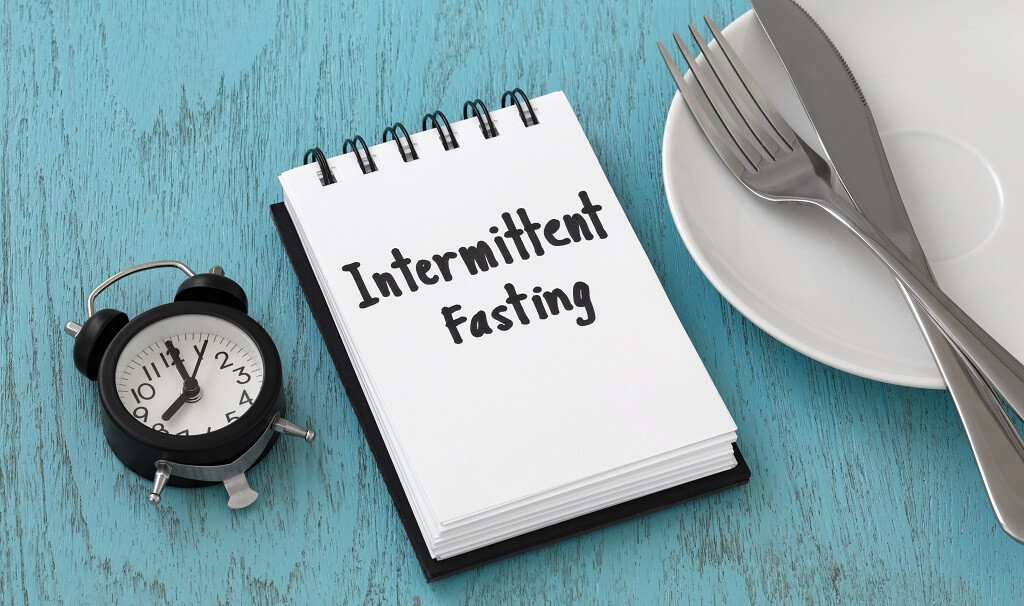5 Things You Need To Know About Intermittent Fasting

Intermittent fasting is one of the health trends that has taken the world by storm. Most people have attributed their success in weight loss and leading healthier lifestyles to intermittent fasting, but what exactly does it involve?
Intermittent fasting refers to cycling eating and fasting periods. Its main focus is on when you should eat rather than what you should eat. It's not a diet as most people would assume, but an eating pattern.
As you may have already guessed, intermittent fasting has many benefits—but you can only enjoy these if done right. The aim of this article is to explain things you should know about intermittent fasting.
1. Intermittent Fasting Plans
Intermittent fasting is based on the idea of abstaining from eating during certain times or days, and eating normally on the rest. There are at least four basic intermittent fasting plans that can all produce varying results in different people.
The following are the different intermittent fasting methods:
- The 16:8 Method: This regimen, also known as the Leangains Protocol, involves fasting for 16 hours then eating normally for 8 hours. For example, you can skip breakfast and restrict your eating window from 1 pm to 9 pm. Some people may prefer to skip dinner instead and have two or three meals during the eating window. You can follow this plan daily or for most days during the week.
- Eat-Stop-Eat Plan: This method is where an individual goes on a complete fast for 24 hours, once or twice a week. For the other days of the week, you can eat normally but within your calorie requirement.
- Alternate-Day Fast: This plan involves a complete fast on one day, alternating with a normal eating day on the next. On the normal eating day, it's recommended you strictly stick to vegetables, protein, and a few healthy fats. You should stay away from starches and sugar. This plan may come off as challenging for beginners and suitable for advanced intermittent fasters.
- The 5:2 Method: This is the friendliest plan of intermittent fasting for beginners. If you choose this plan, you eat normally for five days of the week. On the two days of fasting, you only consume between 500 and 600 calories. You can choose to fast on two consecutive days or different days, say Wednesday and Sunday.
There's no particular plan that works for everyone. What worked for someone else may not yield the same results for you. Also, not all calories should be treated the same. The type of calories you consume should also be healthy.

2. Intermittent Fasting For Weight Loss
Weight loss is the most common motive for people who do intermittent fasting. This is because it allows the body to increase the amount of time used to burn food energy.
Stored energy is mostly in the form of excess body fat. When you fail to consume more fat, your body uses the stored fat for energy.
Because you eat fewer meals during the day, you automatically reduce your calorie intake. Aside from that, intermittent fasting facilitates weight loss by altering your hormone levels.
3. Health Benefits
The most popular intermittent fasting health benefit is weight loss—but that's not all. Intermittent fasting has many other benefits to your mind and body. They include:
- Insulin resistance
- Potential reversal of type 2 diabetes
- Reduction of inflammation
- Enhanced heart health
- Improved brain health
- Anti-aging
Another benefit of intermittent fasting that's often overlooked is that it makes healthy eating simpler. Intermittent fasting simplifies diets that get complicated at times.
4. Drinks While Fasting
As a way to reduce hunger pangs, you're allowed to take zero-calorie drinks while fasting. The most popular drinks encouraged for this include herbal tea and black coffee, but make sure you don't add sugar or milk. Coffee can be quite advantageous while fasting as it minimizes hunger.
Also, take a lot of water. Even under normal circumstances, it's recommended that you take between two to three liters of water per day. This means that you might need extra glasses while fasting. Remember to always stay hydrated.
5. People Not Allowed To Fast
While intermittent fasting offers a myriad of benefits, it's not for everyone. You shouldn't fast if you fall under any of the following categories:
- Underweight: If your BMI is below 18.5
- Pregnant Or Breastfeeding Women: You need more nutrients for your baby
- Under 18: Your body is still in the development stages
- Cancer Patients: You need more strength for the medication
- Seniors: Your body needs the extra strength
Keep in mind that people with some medical conditions, such as diabetes and heart disease, need medical supervision to fast.
In Conclusion
Intermittent fasting has become popular among people seeking to lose weight and lead healthier lives. It has many benefits if done right, and there are many intermittent fasting plans from which you can choose. No single plan will guarantee everyone the same results, so you might need to experiment to see what works best for you. Consulting your doctor or dietician can also help in this regard.
Health benefits of intermittent fasting include improved insulin resistance, reduced inflammation, possible reversal of type 2 diabetes, and more.
839GYLCCC1992




Leave a Reply